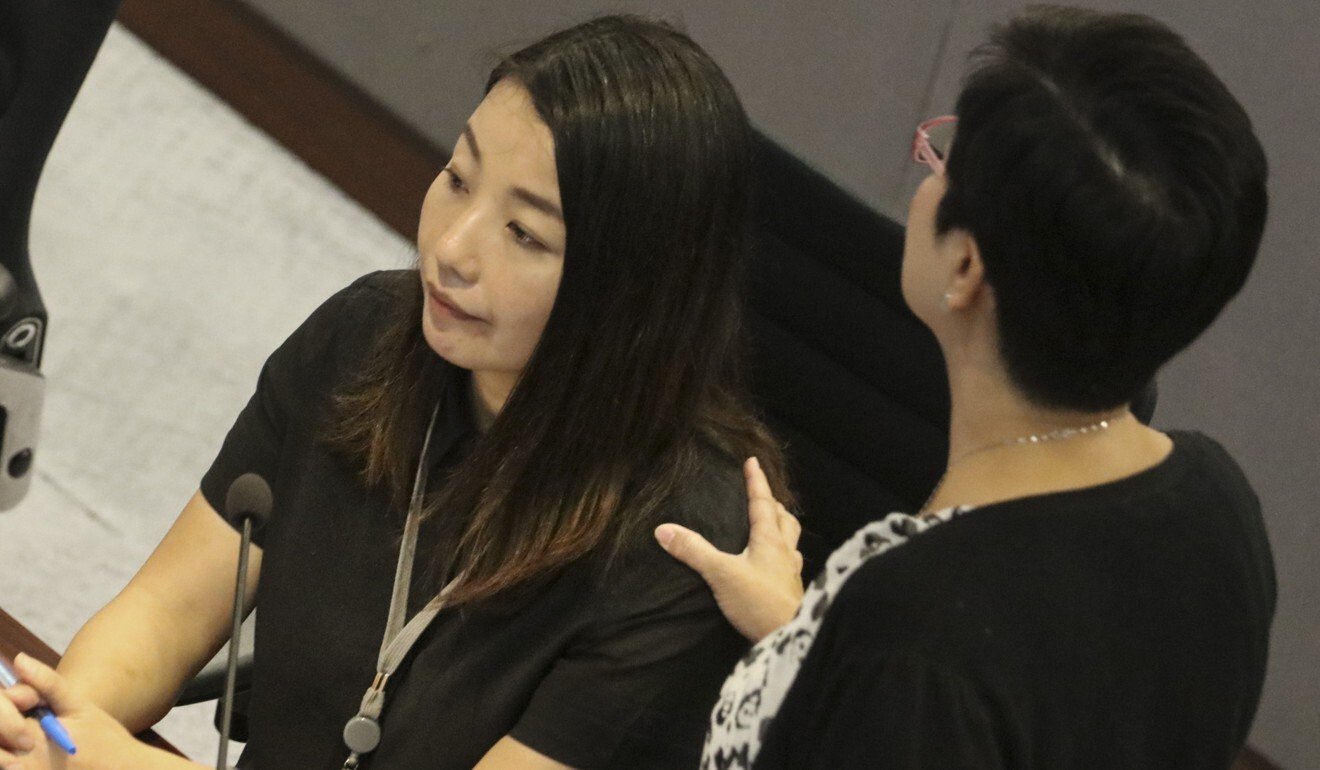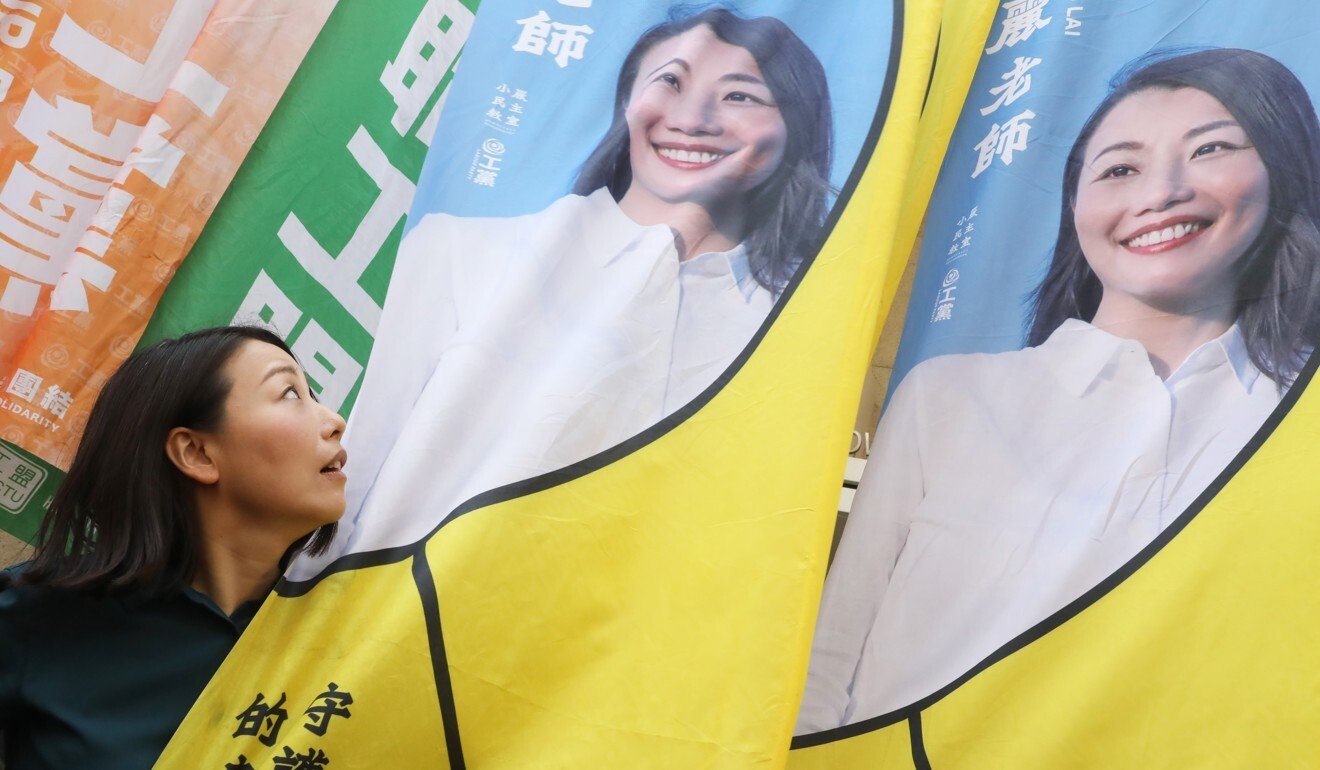
Disqualified Hong Kong lawmaker Lau Siu-lai was denied chance to respond to allegations of not upholding Basic Law, judge says
- Senior Counsel Paul Shieh says Lau was not given a chance to respond to allegations of improper oath-taking during a swearing-in ceremony
- He questioned why Lau was barred from a by-election when Edward Yiu, also accused of improper oath-taking, was allowed to run in Kowloon West
Disqualified lawmaker Lau Siu-lai was denied the opportunity to respond to allegations of not genuinely upholding Hong Kong’s mini-constitution before she was barred from trying to win back her seat in the Legislative Council, a judge has observed.
Mr Justice Anderson Chow Ka-ming made the remark on Thursday while hearing an election petition from Lau, who has asked the High Court to determine whether pro-establishment lawmaker Chan Hoi-yan had been duly elected to the office of Kowloon West constituency in November 2018.
The opposition activist was one of six lawmakers elected during the 2016 elections but disqualified by the court over improper oath-taking during their swearing-in ceremony, which later triggered Beijing’s interpretation of the Basic Law’s Article 104 on oaths.
She had planned to run for the same office but was banned on October 12, 2018, after returning officer Franco Kwok Wai-fun found she had not genuinely changed her previous position of advocating self-determination for Hong Kong, despite her ditching the stance ahead of the polls.
Paul Shieh Wing-tai SC said Lau was not given a chance to respond to the allegations.

The counsel said there was nothing in Lau’s oath-taking case, Article 104 or its interpretation that contemplated the scenario of a by-election and could explain why she was disqualified from this particular office defined by constituency.
He questioned why his client was barred from the by-election when Kwok allowed Edward Yiu Chung-yim of the same camp to run in Kowloon West constituency in the March 2018 by-election. Yiu had been similarly stripped of his functional constituency seat over improper oath-taking.
Ousted lawmaker Lau Siu-lai announces bid to return to the Legislative Council
This suggested Lau could stand in another constituency if Kwok was correct.
“It is only for Kowloon West, for some reason, that she just can’t stand,” Shieh continued. “There is no rational reason. No election-related reason has been given as to why this distinction was drawn.”
Shieh also observed that Yiu was asked to explain his statements, which raised a “gigantic question mark as to why it had not been done in this case”.
Kwok’s counsel, Johnny Mok Shu-luen SC, said Lau’s case was unlike the previous petitions successfully lodged by opposition activists Agnes Chow Ting or Ventus Lau Wing-hong because she had been disqualified by a court before.

Chan’s counsel, Mike Lui, agreed that the oath-taking incident must be relevant.
“This is indeed a very distinctive feature of this case,” Lui said.
Mok argued that the finding of the court suggested Lau “lacked the requisite qualities to stand for office” and the absence of these qualities would continue until “a material change” occurred.
“The lingering effect is lost when the earlier court finding is superseded by a fresh determination based on evidence the person is now in possession of the requisite qualifications,” Mok continued. “Failing such determination, the previous finding continues to have an effect.”
Is Hong Kong’s Basic Law standing firm at 30?
Mok further argued that both the court and the returning officer could make such a determination, but ultimately it was a constitutional question for a judge.
“The person can repent,” he continued. “If she can tell the judge what amounts to repentance, the court can judge.”
“But no question was asked,” Chow observed.
To this, Mok replied: “Your lordship may be minded to find not giving her an opportunity to respond may amount to an irregularity in the election process.”
The court has reserved judgment.
Help us understand what you are interested in so that we can improve SCMP and provide a better experience for you. We would like to invite you to take this five-minute survey on how you engage with SCMP and the news.

